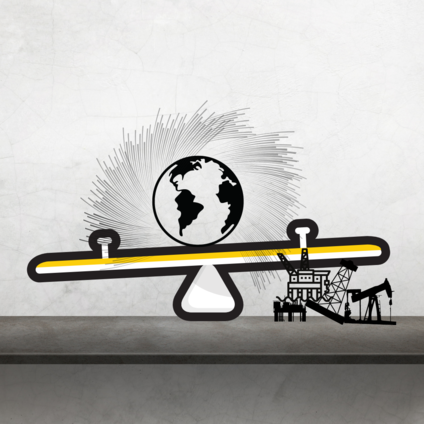
On Friday 21st October 2022, the Norwegian minister of trade and industry, Jan Christian Vestre, announced that companies in which the Norwegian government has a majority share must have climate targets and implement measures to reduce climate emissions in line with the Paris agreement, and report direct and indirect emissions. The government also expects state-owned companies to have targets and measures, and to report on, reducing their negative impact and increasing their positive impact on nature and ecosystems.
One of the companies that has to comply with the new requirements is oil and gas major Equinor, where the Norwegian state is the majority shareholder (67%). While Equinor updated their climate targets last year, international environmental NGOs are concerned that this does not show a real commitment to a 1.5 -degree target.
The Norwegian government now sets climate expectations for Equinor. We cannot tolerate that the same company is planning to open a new operation, Bay du Nord, which would by definition breach global climate targets. Equinor has to stop Bay du Nord.
“Equinor’s Bay du Nord project will produce pollution equivalent to Norway putting 7-10 million new cars on the road per year. Canadians have rallied to oppose this project because of its lack of Indigenous consultation, and catastrophic climate and ocean implications,” says Gretchen Fitzgerald, National Programs Director with the Sierra Club Canada Foundation.
“This fall, we have been devastated and tragically people have died due to a hurricane on the East Coast and Canadians are unable to irrigate their farms or breathe safely due to forest fires and droughts on our West Coast. We are very glad to see the Norwegian government proposed such strong rules to deal with the climate emergency and we expect Equinor’s oil expansion plans to be ended immediately."
“The Norwegian state, the majority shareholder, now expects climate targets in line with the Paris agreement. The International Energy Agency (IEA) and the UN are clear that there is no room for new oil and gas exploration in a 1.5-degree scenario. Equinor should change its business model to be in line with the Paris agreement. This means that they need to stop new petroleum investments and invest in a green future,” said Karoline Andaur, CEO of WWF Norway.
Equinors current oil and gas portfolio is not in line with the Paris agreement. WWF Norway has used the Rystad Energy database to estimate the future emissions from Equinor’s portfolio of oil and gas projects. WWFs analysis shows that the emissions from Equinor operated projects will increase by 22 percent from 2022 to 2030. This stands in stark contrast to the company’s own climate target of a 20 percent reduction in net carbon intensity by 2030.
“The increased focus on climate by the Norwegian government should have consequences for projects with large emissions and severe consequences for nature, such as the Wisting field in the Arctic, the Rosebank field in the UK, Bay du Nord in Canada and exploration activity off the coast of Argentina,” said Andaur.
These are the main expectations on climate and nature in the white paper on ownership
Climate: The Norwegian government expects that:
The company identifies and handles risks and opportunities in relations to climate change and integrates this into company strategies.
The company sets goals and takes action on reducing emissions in the short and long term in accordance with the Paris agreement, and reports on level of achievement. Goals are to be based on science where possible.
The company reports direct and indirect climate emissions and climate risk, and uses known standards for reporting emissions and climate risk.
Biodiversity and ecosystems: The government expects that:
The company identifies and handles risks and opportunities related to nature and integrates this in company strategies.
The company sets goals and takes action to reduce the company’s negative impacts, and create more positive impacts on biodiversity and ecosystems, and reports on goal achievements.
The company reports using known standards on risk to nature and impacts on biodiversity and ecosystems.
The Norwegian state has direct ownership in 70 companies, with an estimated value at NOK 1,179 billion (EUR 95 billion) at year end in 2021. The white paper launched today describes the government’s expectations for companies where the government is the sole owner or has a majority share.
-30-
For media interview contact information please email Media@sierraclub.ca
